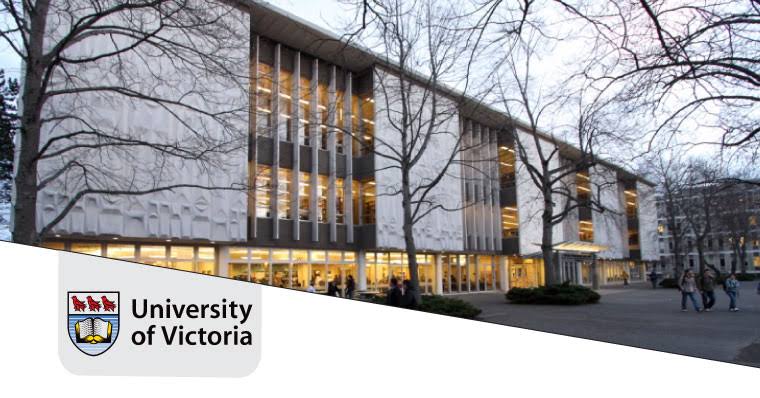Canada is one of the top choices for international students, and by July 2025, it is more popular than before. It is known for great education, a diverse culture, safety, and chances to stay after studying. Studying in Canada means more than getting a degree—it helps students build a career, grow personally, and possibly live in Canada permanently.
High-Quality Education Recognized Worldwide
One of the most significant benefits of studying in Canada is access to a globally respected education system. Canadian universities and colleges consistently rank among the top institutions in the world, offering degrees, diplomas, and certifications that are widely recognized by employers and academic institutions globally. Schools such as the University of Toronto, University of British Columbia, McGill University, and University of Waterloo are renowned for their research output, innovation, and industry ties.
Moreover, Canadian institutions offer cutting-edge programs across various fields, including engineering, computer science, healthcare, business, and environmental studies—many of which are aligned with high-demand sectors in the global economy.
Affordable Tuition and Quality of Life
Compared to countries like the United States, the United Kingdom, and Australia, Canada offers relatively affordable tuition fees and living costs. Many provinces also offer subsidized healthcare for international students, and public transportation, housing, and food costs are moderate compared to major international study destinations.
In addition, cities like Montreal, Ottawa, and Halifax consistently rank high on global livability indexes, making them comfortable, safe, and vibrant places to live and study. Students benefit from clean environments, a strong sense of community, and access to natural beauty—from mountain ranges and lakes to national parks and urban green spaces.
Opportunities for Work While Studying
As of 2025, Canada allows international students with a valid study permit to work up to 20 hours per week during academic sessions and full-time during scheduled breaks. This flexibility enables students to support themselves financially, gain Canadian work experience, and improve their employability.
Some high-demand fields even allow students to work more than 20 hours a week temporarily, depending on updated public policies from Immigration, Refugees and Citizenship Canada (IRCC). This not only helps with the cost of living but also enhances real-world skills and networking opportunities.
Pathway to Permanent Residency
Perhaps one of the most attractive benefits of studying in Canada is the clear immigration pathway it offers. Through programs like the Post-Graduation Work Permit (PGWP), international students can work in Canada for up to three years after completing their studies. This work experience is valuable when applying for permanent residency through streams such as:
- Canadian Experience Class (Express Entry)
- Provincial Nominee Programs (PNPs)
- Quebec Experience Program (PEQ)
- Atlantic Immigration Program
Many of these programs award extra points or prioritization for Canadian education and work experience. With supportive immigration policies, Canada encourages international students to transition into permanent residents and, eventually, citizens.
Cultural Diversity and Inclusive Society
Canada is known for its welcoming, multicultural environment. International students quickly find themselves part of an inclusive society that celebrates diversity in race, religion, gender identity, and culture. This social openness translates into student-friendly communities and campuses, with numerous cultural associations, festivals, and support services for newcomers.
Students can maintain their cultural identity while also embracing Canadian values of tolerance, equality, and democratic freedom. The sense of belonging and emotional safety often makes the transition smoother and more enriching.
Innovative Research and Industry Partnerships
Canada excels in research and innovation. Whether it’s artificial intelligence in Toronto, clean energy in British Columbia, or agritech in Saskatchewan, students have access to opportunities that go beyond the classroom. Many universities offer cooperative education (co-op) and internship programs that allow students to work with top employers while earning their degrees.
Government and industry collaborations ensure that education is practical and relevant. Institutions receive funding for research in STEM, healthcare, environment, and social policy, giving graduate students unique chances to contribute to global knowledge and innovation.
Language Skills and Bilingual Advantage
While English is the dominant language in most provinces, Canada is officially bilingual. This presents students with the opportunity to improve both English and French language skills, an advantage that boosts employability and allows access to a broader range of jobs in Canada and internationally.
Quebec, in particular, offers unique study experiences in French-language institutions, while also providing immigration pathways through its own selection programs.
Family Support and Dependent Pathways
International students in Canada can bring their spouse or common-law partner, who is eligible for an open work permit, as well as dependent children who may attend public school tuition-free in most provinces. This family-friendly approach enhances the appeal for those who do not want to be separated from their loved ones while pursuing higher education abroad.
Long-Term Career Growth and Global Recognition
Studying in Canada is not just a short-term academic journey—it sets the stage for long-term career and personal development. Canadian credentials are respected worldwide, and the combination of academic knowledge, local work experience, and cultural adaptability makes graduates highly competitive in the job market.
Those who choose to remain in Canada benefit from a stable economy, high-quality public services, and progressive labor laws that protect workers’ rights and support work-life balance.
Final Thoughts
Immigrating to Canada as a student in 2025 offers more than just academic excellence. It provides access to a world of opportunity—financial, professional, and personal. From high-quality education and career pathways to permanent residency and cultural inclusivity, Canada is a top destination for those who wish to build a future grounded in growth, security, and belonging.




Every opportunity listed above makes Canada to be my next destination.
Yes agreed